Key Takeaways
Discover proven methods to find digital yearbooks from your school years. Learn where to search, access free online archives, and explore modern digital yearbook platforms that preserve memories forever.
Why People Search for Digital Yearbooks
The desire to find digital yearbooks stems from numerous motivations, each reflecting the enduring value these memory books hold decades after graduation:
Reconnecting with the Past
Lost Physical Copies: Many people misplaced their yearbooks during moves, storage cleanouts, or life transitions. Digital copies provide a way to recover these irreplaceable memories.
Never Purchased: Some students didn’t buy yearbooks during school years due to cost, indifference at the time, or simply forgetting. Years later, they regret missing this record of their youth.
Damaged Originals: Water damage, fire, deterioration, or simply wear and tear from repeated viewing can render physical yearbooks unusable, making digital versions essential for preserving what remains.
Practical Applications
Reunion Planning: Class reunion committees need yearbooks to locate classmates, verify names, refresh memories, and create nostalgic displays that encourage attendance.
Genealogy Research: Family historians use yearbooks to verify family members’ attendance at specific schools, identify maiden names, and discover details about relatives’ school years.
Background Research: Writers, journalists, and researchers often need to verify information about public figures’ backgrounds, athletic achievements, or early accomplishments documented in school yearbooks.
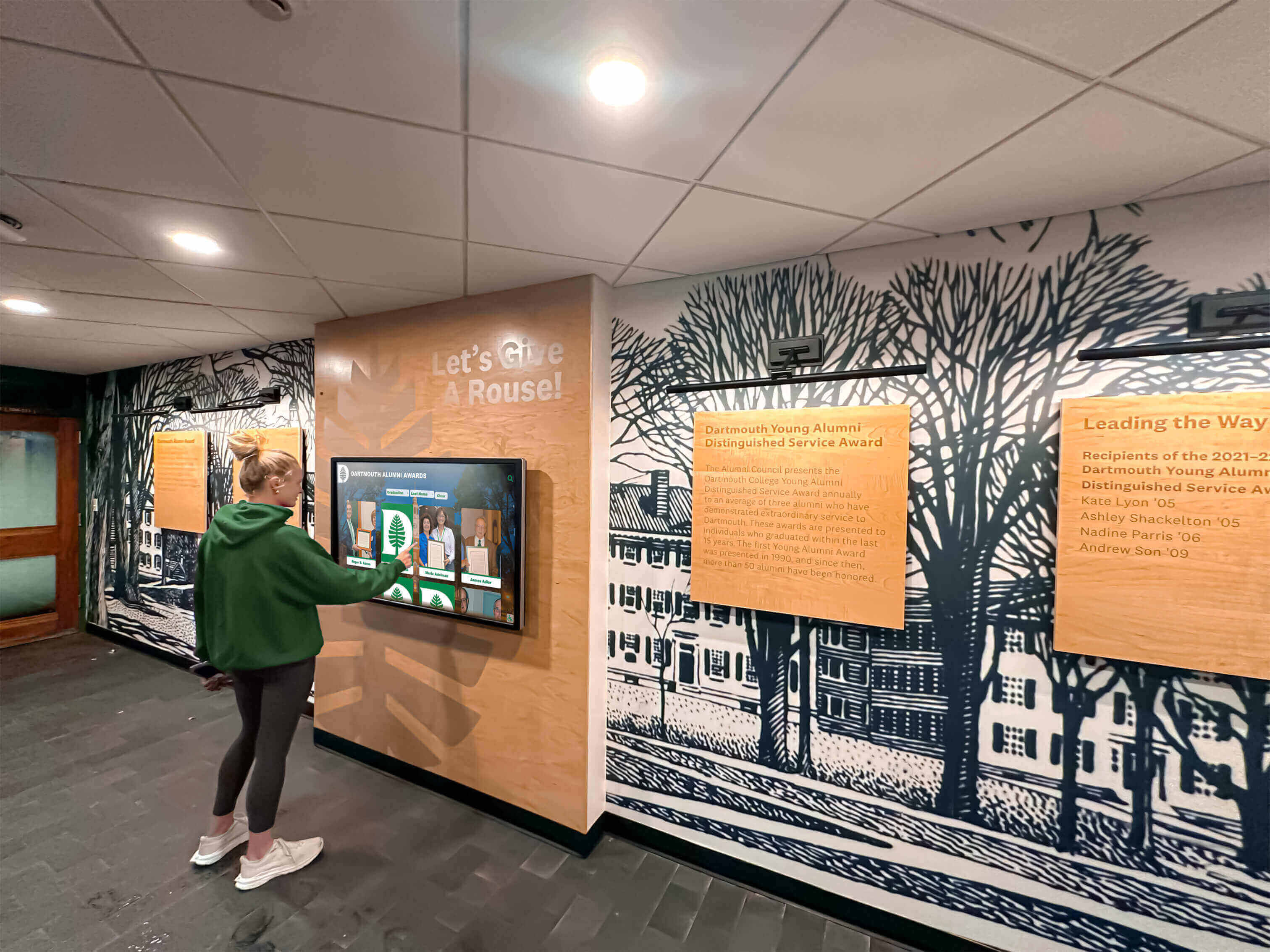
Emotional Connections
Nostalgia: Browsing old yearbooks triggers memories of friendships, teachers, events, and experiences that shaped who we became. This emotional journey proves valuable at different life stages.
Life Transitions: Major life events—milestone birthdays, children leaving for college, retirement—often prompt reflection on formative years, making yearbooks particularly meaningful during these periods.
Maintaining Identity: Yearbooks document a specific time in personal development, helping individuals maintain narrative continuity across their entire life story.
Where to Find Digital Yearbooks: Top Resources
Multiple platforms now offer access to digitized yearbook collections, each with distinct advantages, limitations, and coverage areas:
E-Yearbook.com: Free Community-Driven Platform
What It Offers: E-Yearbook.com hosts one of the largest free collections of digital yearbooks in the United States. The platform relies on community contributions, with alumni and schools uploading digitized yearbooks to share with others.
How to Use:
- Navigate to E-Yearbook.com
- Browse by state and city
- Select your school from the list
- View available yearbook years
- Browse pages within each yearbook
Coverage:
- Thousands of schools across all 50 states
- Coverage varies significantly by location
- Some schools have comprehensive archives spanning decades
- Others may have only a few isolated years
- Primarily U.S. schools, limited international coverage
Advantages:
- Completely free access with no subscription required
- Simple interface requiring no technical expertise
- Allows viewing individual pages or entire yearbooks
- Enables community members to contribute missing years
Limitations:
- Inconsistent coverage depends on volunteer contributions
- Quality varies from professional scans to smartphone photos
- No guarantee your specific school or years are included
- Limited search functionality within yearbooks
- Some pages may be missing from uploaded yearbooks
Classmates.com: Comprehensive Commercial Platform
What It Offers: Classmates.com maintains one of the most extensive commercial yearbook databases, combining digitized yearbooks with tools for reconnecting with former classmates.
Access Structure:
- Basic browsing available without membership
- Full-page viewing requires subscription
- Various membership tiers offering different access levels
- Often runs promotional discounts for new members
Features:
- Extensive database covering decades
- Search functionality across yearbooks
- Tools for finding and messaging former classmates
- Reunion planning resources
- Ability to update your own profile
Coverage: Particularly strong coverage of U.S. high schools from 1940s through 2000s, with growing college yearbook collections and expanding recent year coverage.
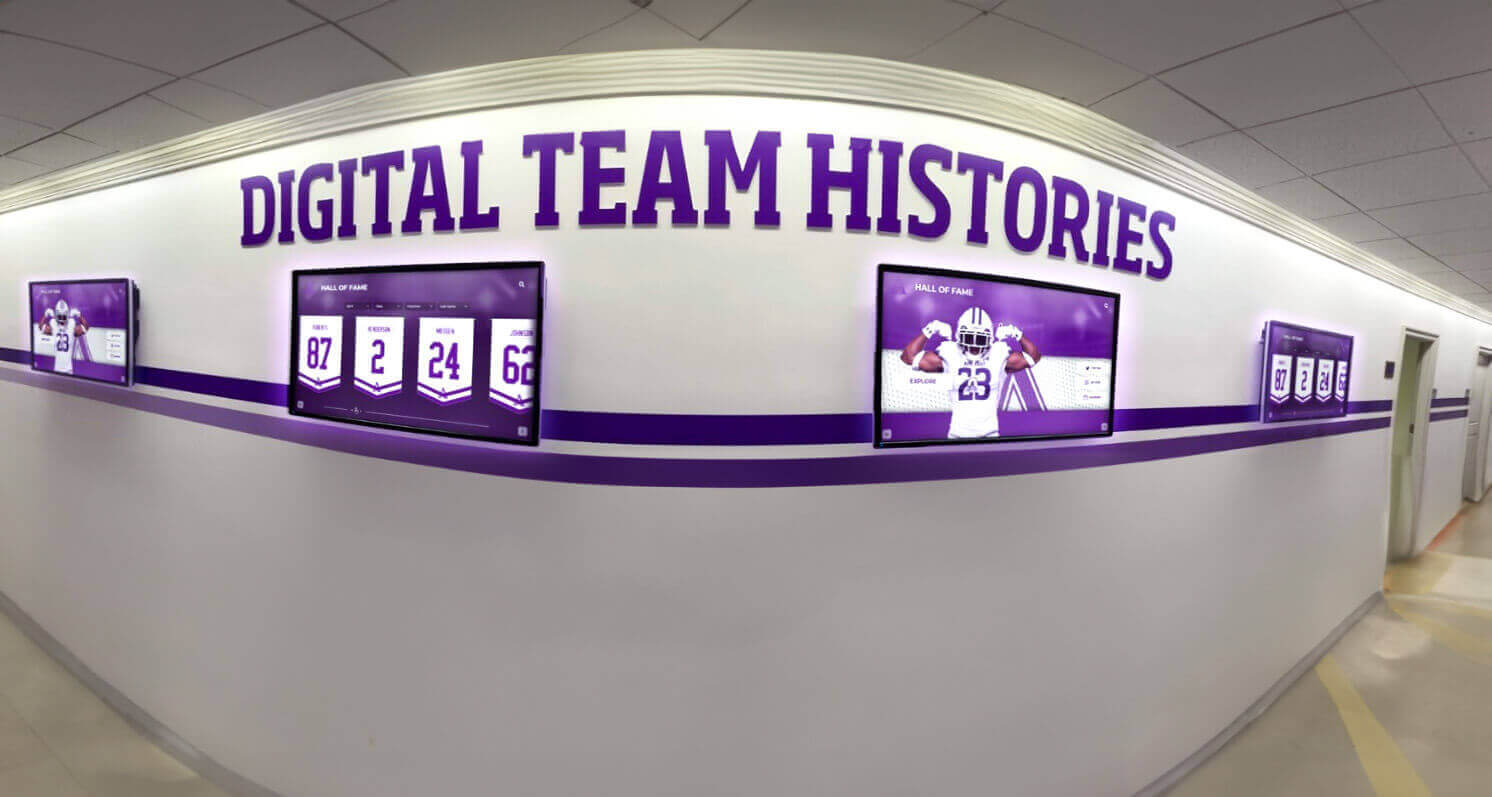
Ancestry.com: Genealogy-Focused Resource
What It Offers: Ancestry.com includes an extensive U.S. School Yearbooks collection as part of its broader genealogical research resources.
Collection Details:
- Over 370 million yearbook pages
- Coverage from 1900 through 1990s
- Emphasis on older historical yearbooks
- Integrated with family tree building tools
Access Options:
- Requires Ancestry subscription for full access
- Many public libraries offer free Ancestry access with library card
- Home library access may be available through local institutions
- Various subscription tiers at different price points
Advantages:
- Extensive historical coverage of older yearbooks
- High-quality digitization of many volumes
- Powerful search capabilities across entire collection
- Integration with other genealogical records
- Ability to add yearbook pages to family trees
Best For:
- Researching deceased family members’ school years
- Finding yearbooks from several decades ago
- Genealogical research projects
- Those with existing Ancestry subscriptions
Internet Archive: Nonprofit Digital Library
What It Offers: The Internet Archive (Archive.org) includes thousands of yearbooks in its vast collection of digitized materials, all freely accessible to anyone.
Access Method:
- Visit Archive.org
- Search “[School Name] yearbook [Year]”
- Browse results for your specific yearbook
- View pages directly in browser
- Download entire yearbooks as PDFs if desired
Unique Features:
- Completely free with no registration required
- Downloadable PDFs of complete yearbooks
- Multiple file format options
- Preservation-quality digitization
- Part of permanent digital archive
Collection Characteristics:
- Particularly strong in college and university yearbooks
- Growing high school collection
- Emphasis on older historical yearbooks
- Coverage expands continuously through donations
- Many rare yearbooks from closed schools
Advantages:
- No cost or membership barriers
- High-quality preservation scans
- Ability to download entire yearbooks
- Supports nonprofit preservation mission
- Often includes yearbooks unavailable elsewhere
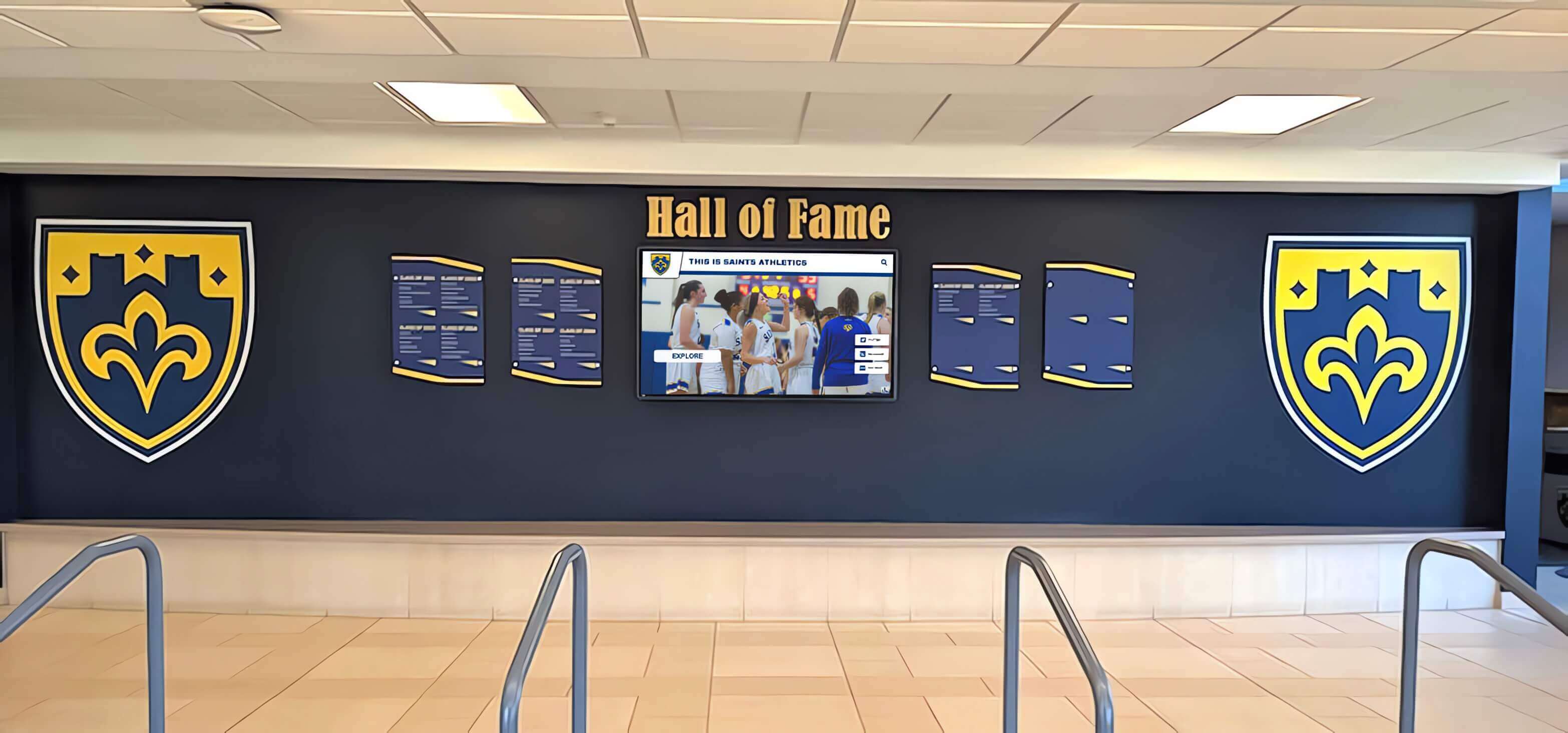
Searching Your School Directly
Before exploring commercial platforms, always check with your school directly—many institutions now offer digital yearbook access to alumni:
School Library and Media Centers
Most schools maintain yearbook archives in their libraries or media centers:
Contact Approach:
- Call or email the school library directly
- Explain you’re seeking specific yearbook years
- Ask about viewing policies and procedures
- Inquire whether digital versions exist
- Request information about remote access options
What to Expect: Some schools allow in-person viewing by appointment, others maintain digital archives accessible through school websites, and progressive institutions offer comprehensive digital yearbook platforms with remote access for verified alumni.
Alumni Affairs and Development Offices
Colleges and universities with dedicated alumni offices often maintain yearbook collections specifically for graduate access:
Services Typically Offered:
- Digital yearbook archives accessible through alumni portals
- Assistance locating specific individuals or information
- Scanning services for specific pages upon request
- Integration with alumni directory information
- Reunion planning support including yearbook access
Alumni Portal Access: Many institutions provide yearbook access through password-protected alumni websites. Check your school’s alumni association website for digital resources available to graduates.
Athletic Departments
For athletes seeking sports-related yearbook content:
Why Contact Athletic Departments:
- Often maintain separate archives of team photos
- May have athletic-specific yearbooks or media guides
- Can provide sports record board information supplementing yearbook content
- Sometimes offer better preservation of athletic photos
- May have digital versions of sports sections
Modern Solutions: Interactive Digital Yearbook Platforms
Forward-thinking schools are moving beyond simply scanning old yearbooks—they’re implementing comprehensive digital memory platforms that transform how communities access and engage with school history:
The Evolution from Paper to Digital
Traditional yearbooks face inherent limitations:
📦 Physical Constraints
Limited copies, storage requirements, accessibility only through physical location
⏱️ Deterioration
Paper yellows, bindings break, photos fade, and damage becomes irreversible
🔍 Discovery Challenges
Finding specific individuals requires manually flipping through hundreds of pages
📍 Geographic Barriers
Alumni must physically visit schools to access yearbook archives
How Digital Yearbook Systems Work
Modern digital yearbook platforms address traditional limitations through technology:
Interactive Touchscreen Displays: Schools install large touchscreen displays in high-traffic areas like main entrances, alumni centers, or lobbies. These systems feature intuitive interfaces allowing visitors to browse yearbooks by year, search for specific individuals, zoom into photos for detail, and explore connections between yearbook content and current achievements.
Cloud-Based Content Management: Behind the scenes, cloud platforms store high-resolution yearbook scans, enable authorized staff to upload new content easily, provide automatic backup and redundancy, and support multiple simultaneous users without performance issues.
Multi-Access Points: The same yearbook content appears across physical touchscreens on campus, password-protected alumni websites accessible remotely, mobile apps optimized for smartphones and tablets, and social media integration for sharing memories.
Enhanced Search Capabilities: Advanced systems incorporate optical character recognition (OCR) making all text searchable, tag individuals appearing in photos, categorize content by activities, sports, or departments, and enable filtering by graduation year or category.
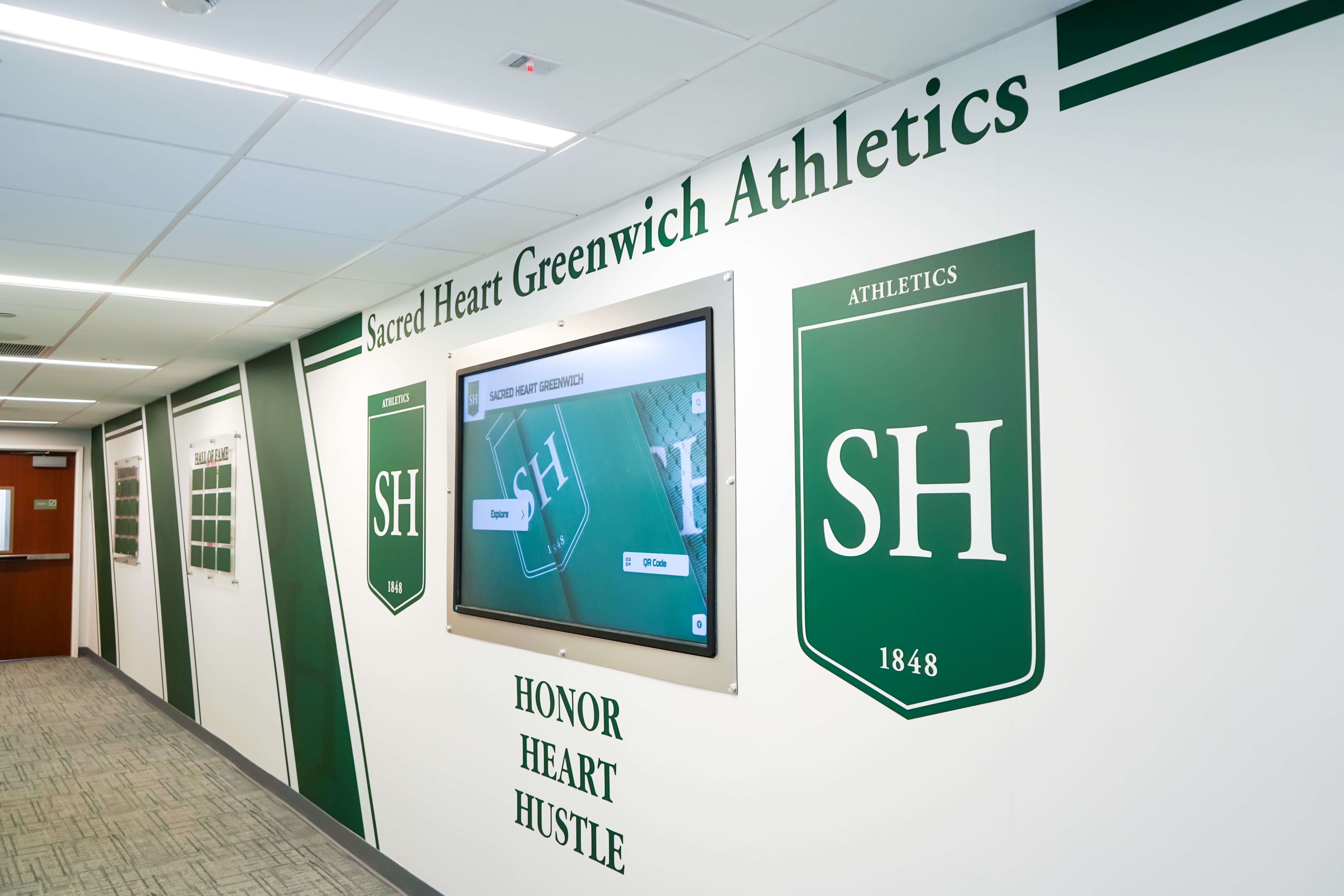
Benefits of Digital Yearbook Access
The transition from physical yearbooks to digital platforms delivers advantages for all stakeholders:
For Alumni
Unlimited Access: View yearbooks anytime from anywhere without worrying about damaging fragile originals, sharing simultaneously with family and friends, or geographic barriers preventing access.
Enhanced Discovery: Search for your name across all digitized years instantly, find forgotten classmates and connections, explore activities and events you’d forgotten, and discover how you appeared in group photos and candids.
Sharing Capabilities: Screenshot and share specific pages with former classmates, show children or grandchildren your school years, contribute to reunion planning and reminiscing, and post nostalgic content to social media.
Permanent Preservation: Digital copies ensure memories survive regardless of physical yearbook condition, backup copies protect against loss or damage, and future generations can access family school history.
For Schools
Preservation: Protect original yearbooks from handling damage, create backup copies ensuring nothing is permanently lost, and free physical storage space for other uses.
Alumni Engagement: Strengthen connections with graduates through accessible memories, support reunion planning and fundraising efforts, provide valuable resources alumni appreciate, and demonstrate commitment to honoring school community.
Recruitment and Development: Showcase institutional history to prospective families, demonstrate long-standing traditions and excellence, support fundraising through nostalgia-driven donor cultivation, and enhance advancement marketing capabilities.
Educational Value: Provide primary sources for student history projects, document institutional evolution over decades, support cultural and social history education, and strengthen school pride through connection to tradition.

For Current Students
Historical Context: Understand school traditions and their origins, see how campus and programs evolved over time, discover multi-generational family connections to the school, and build appreciation for institutional legacy.
Inspiration: Learn about accomplished alumni’s school years, see pathways from student to professional success, recognize that current achievements build on past excellence, and feel connected to something larger than themselves.
Step-by-Step: How to Find Your Digital Yearbook
Follow this systematic approach to maximize your chances of locating digital versions of your yearbooks:
Step 1: Identify Your Details
Before searching, compile relevant information:
- School name (including any name changes over the years)
- Exact location (city and state)
- Graduation year (or years you attended)
- School mascot or colors (helps verify correct school)
- Any alternative school names (merger, district changes, etc.)
Step 2: Check School Resources
Start with official channels:
- Visit your school’s website looking for alumni resources
- Search for “yearbook archive” or “digital yearbooks” on the site
- Contact the school library via phone or email
- Reach out to alumni affairs if the school has this office
- Check school social media for announcements about digital archives
Step 3: Search Free Platforms
Explore free resources systematically:
E-Yearbook.com:
- Navigate to the site
- Browse by state, then city
- Look for your school
- Check all available years
- Note any gaps in coverage
Internet Archive:
- Search “[School name] yearbook [year]”
- Try variations of school name
- Search adjacent years if target year unavailable
- Download PDFs of found yearbooks
Step 4: Explore Subscription Services
If free platforms don’t have your yearbooks:
Classmates.com:
- Check basic preview before subscribing
- Look for promotional trial periods
- Consider short-term subscription if yearbook is confirmed available
Ancestry.com:
- Check if your local library offers free access
- Search the yearbook collection before subscribing
- Utilize free trial periods strategically
Step 5: Contact Community Resources
Local resources often overlooked:
- Public library local history department
- County historical society or archives
- State library digital collections
- University special collections (if college yearbook)
Step 6: Connect with Alumni Networks
Leverage community connections:
- Join school-specific Facebook groups
- Search LinkedIn for classmate networks
- Post requests in relevant alumni forums
- Contact reunion committees who may have digitized yearbooks
- Reach out to former classmates who may own copies

What to Do If You Can’t Find Your Yearbook
When exhaustive searching doesn’t locate your specific yearbook, consider these alternatives:
Alternative Memory Sources
School Newspapers: Many schools maintain newspaper archives that include photos, stories, and information similar to yearbook content. Check with school libraries or local history collections.
Class Composite Photos: Formal class photos of entire graduating classes often exist even when full yearbooks are unavailable. Contact school administrative offices or local photographers.
Athletic Program Archives: Sports programs and media guides from your years may include team rosters, individual photos, and season summaries.
Local Newspaper Archives: Community newspapers covered school events, sports, academic achievements, and graduation announcements. Many now have searchable digital archives.
Contributing to Future Access
Help others find what you located:
If you own physical yearbooks from years not yet digitized:
- Consider donating copies to your school
- Contact E-Yearbook.com about uploading scans
- Coordinate with alumni groups for digitization projects
- Preserve your own copies through professional scanning
Support school digitization efforts:
Many schools want to digitize yearbook archives but lack funding or volunteer assistance. Offer to help by providing financial support for professional scanning, volunteering to scan yearbooks if you have appropriate equipment, organizing classmate contributions for specific years, or connecting schools with digital archive solutions.
The Future: Interactive Digital Recognition Systems
The most innovative schools are moving beyond basic digital yearbook access toward comprehensive recognition platforms that integrate yearbooks with broader celebration of achievement and community:
Integrated Memory Platforms
Modern Digital Recognition Goes Beyond Traditional Yearbooks
Traditional Digital Yearbooks
- Scanned pages viewable online
- Basic search by year
- Static content from publication date
- Separate from other school archives
- Limited engagement after initial viewing
Integrated Recognition Platforms
- Yearbooks connected to achievements and honors
- Searchable by individual, activity, or category
- Continuously updated with new content and context
- Unified access to all school history materials
- Interactive features driving ongoing engagement
How Integration Works
Solutions like Rocket Alumni Solutions create comprehensive platforms where yearbook content connects with digital halls of fame, athletic achievements, academic honors, and alumni success stories:
Connected Narratives:
- Yearbook senior portraits link to updated alumni profiles
- Team photos connect to championship records and statistics
- Club activity pages relate to current program information
- Individual yearbook appearances compile across all years
Enhanced Context:
- “Then and now” comparisons showing growth and change
- Multi-generational family connections across decades
- Tradition evolution demonstrated through yearbook evidence
- Institutional milestone documentation
Ongoing Engagement:
- Alumni can update their own profiles over time
- Comments and stories add context to yearbook photos
- Social features enable reconnection with classmates
- Mobile access ensures engagement anywhere, anytime

Privacy and Ethical Considerations
As yearbooks transition from semi-private school documents to publicly accessible digital archives, important questions arise:
Privacy Concerns
Individual Consent: Students appearing in historical yearbooks never consented to widespread digital publication. Schools should consider implementing takedown request processes for individuals who object, restricting access to verified alumni rather than public viewing, and removing or redacting sensitive personal information like addresses.
Appropriate Use: Clear policies should govern using yearbook images in commercial contexts without permission, sharing individual’s photos outside intended alumni community contexts, and misusing information for stalking, harassment, or similar purposes.
Responsible Access
Best Practices for Users:
- Respect privacy when sharing yearbook content online
- Obtain permission before posting someone else’s yearbook photo publicly
- Use yearbook information for legitimate purposes only
- Report inappropriate use you encounter
- Support access restrictions that protect vulnerable individuals
School Responsibilities: Institutions digitizing yearbooks should establish clear acceptable use policies, implement authentication systems for appropriate access control, provide mechanisms for content removal requests, and balance historical preservation with individual privacy rights.
Cost Considerations: Free vs. Paid Options
Understanding the cost landscape helps you make informed decisions about yearbook access:
Free Options
E-Yearbook.com:
- Zero cost for viewing
- No registration required
- Unlimited browsing
- Community-supported
Internet Archive:
- Completely free access
- Downloadable PDFs at no charge
- No membership fees
- Donation-supported nonprofit
School Direct Access:
- Often free for verified alumni
- May require alumni association membership
- Sometimes restricted to on-campus viewing only
Library Access:
- Free through local library card
- May provide access to paid services like Ancestry
- Local history collections at no cost
Paid Options
Classmates.com:
- Monthly or annual subscription fees
- Varies by membership tier
- Occasional promotional discounts
- Free trial periods sometimes available
Ancestry.com:
- Subscription required for yearbook access
- Multiple plan levels at different prices
- Often included in larger genealogy package
- Free trials available for new users
Determining Value
Consider paid subscriptions when:
- Your yearbook is confirmed available only on paid platform
- You need access to multiple years across different schools
- Additional features (genealogy, classmate connection) add value
- Time savings from comprehensive search justify cost
Stick with free options when:
- Your yearbook appears in free databases
- You have flexible timeline for finding yearbook
- You only need access to one or two specific years
- Budget constraints make paid services impractical
Success Stories: Finding Long-Lost Memories
Real examples demonstrate the emotional impact of successfully locating digital yearbooks:
The Reunion That Almost Wasn’t
A 50th high school reunion committee struggled to locate classmates without access to their yearbook. The school had closed decades earlier, and physical yearbooks were scattered among graduates nationwide. A committee member discovered their yearbook on E-Yearbook.com, enabling them to identify all graduates, verify names and photos, and successfully contact 75% of living classmates. The reunion became the best-attended in the school’s history, with many attendees citing yearbook access as key to rekindling interest.
Genealogy Discovery
A family historian researching her great-grandmother’s early life found a 1920s high school yearbook on Internet Archive. The yearbook revealed details never mentioned in family stories—her great-grandmother had been class valedictorian and captain of the debate team. This discovery shifted the family’s understanding of their ancestor, demonstrating intellectual achievements unusual for women of that era.
Personal Closure
A graduate who had struggled with bullying during high school avoided looking at yearbooks for 30 years. Eventually, curiosity led him to find his yearbook digitally. Viewing it as a successful adult provided unexpected closure—he could see his younger self with compassion, recognize resilience he didn’t appreciate at the time, and acknowledge growth he’d achieved since those difficult years.

Tips for Getting the Most from Digital Yearbooks
Once you find your digital yearbook, these strategies enhance the experience:
Effective Searching
Within Platforms:
- Use multiple name variations (nicknames, maiden names)
- Try searching activities or clubs you participated in
- Look beyond your specific page for candid photos
- Check multiple sections where you might appear
- Search for siblings or friends to find additional photos
Cross-Referencing:
- Compare multiple platforms for best quality scans
- Check different years for changing information
- Look at years before and after yours for context
- Reference school newspapers for additional information
Preserving What You Find
Save and Organize:
- Screenshot or download pages featuring you
- Create organized folders by year and school
- Include metadata (year, page number, description)
- Back up digital copies to cloud storage
- Consider creating family history compilations
Sharing Thoughtfully:
- Get permission before sharing others’ photos publicly
- Use private groups for sensitive reunions or memorial content
- Credit sources when posting yearbook images
- Respect copyright when reproducing pages
- Consider privacy of individuals no longer able to consent
Engaging with Content
Interactive Features:
- Leave comments sharing memories on platform-supported sites
- Tag yourself and classmates where functionality exists
- Contribute additional context or corrections
- Share stories triggered by photos
- Connect with classmates through integrated messaging
Helping Your School Create Digital Yearbook Archives
If your school hasn’t yet digitized its yearbook collection, you can help make it happen:
Assessing School Readiness
Questions to Ask:
- Does the school have complete physical yearbook archives?
- What’s the condition of older yearbooks?
- Are there gaps in the collection that need filling?
- Does the school have budget for professional digitization?
- Are there staff members who could manage digital archives?
Proposing Solutions
Building the Case: Present benefits including preservation of irreplaceable materials, enhanced alumni engagement, support for reunion planning and fundraising, educational value for current students, and demonstration of institutional commitment to community.
Funding Options: Explore possibilities like alumni association donations, memorial gifts designated for digitization, class reunion gift campaigns, technology budget allocations, and grants from local foundations or historical societies.
Implementation Approaches
DIY Digitization: For schools with limited budgets, organize volunteer scanning events with appropriate equipment, establish quality standards for consistent results, create organizational systems for file management, and implement backup and storage protocols.
Professional Services: For comprehensive projects, research reputable digitization vendors with educational experience, obtain quotes comparing cost and services, verify insurance and handling procedures, and establish clear timeline and quality expectations.
Turnkey Solutions: For schools wanting complete digital recognition systems, explore platforms like Rocket Alumni Solutions that provide integrated digitization services, turnkey hardware and software, intuitive content management, ongoing technical support, and expandable platforms growing with school needs.
Technology Making Digital Yearbooks Better
Continuous technological advancement improves digital yearbook functionality:
Current Capabilities
OCR (Optical Character Recognition): Modern OCR technology converts images of text into searchable, selectable text, enabling instant name searches across all digitized years, finding mentions of specific activities or events, and locating individuals across multiple yearbooks simultaneously.
High-Resolution Imaging: Advanced scanning creates detailed images allowing significant zoom while maintaining clarity, capturing subtle details invisible in lower resolution, and future-proofing as display technology improves.
Cloud Infrastructure: Cloud-based platforms enable access from any device with internet connection, automatic backup and redundancy, scalable storage expanding as collections grow, and minimal local hardware requirements.
Emerging Technologies
Facial Recognition: Experimental implementations use facial recognition to automatically identify individuals appearing across multiple yearbooks, suggest tags for unidentified individuals in photos, and create comprehensive galleries of all appearances of specific people. Privacy considerations require careful implementation with opt-out capabilities.
Artificial Intelligence: AI technologies automatically enhance faded or damaged yearbook pages, upscale lower-resolution scans using machine learning, categorize content by subject matter automatically, and generate descriptive metadata with minimal manual effort.
Augmented Reality: Forward-looking schools experiment with AR features overlaying historical yearbook photos on modern campus locations, creating interactive campus history tours, and connecting physical spaces to yearbook documentation of past events.
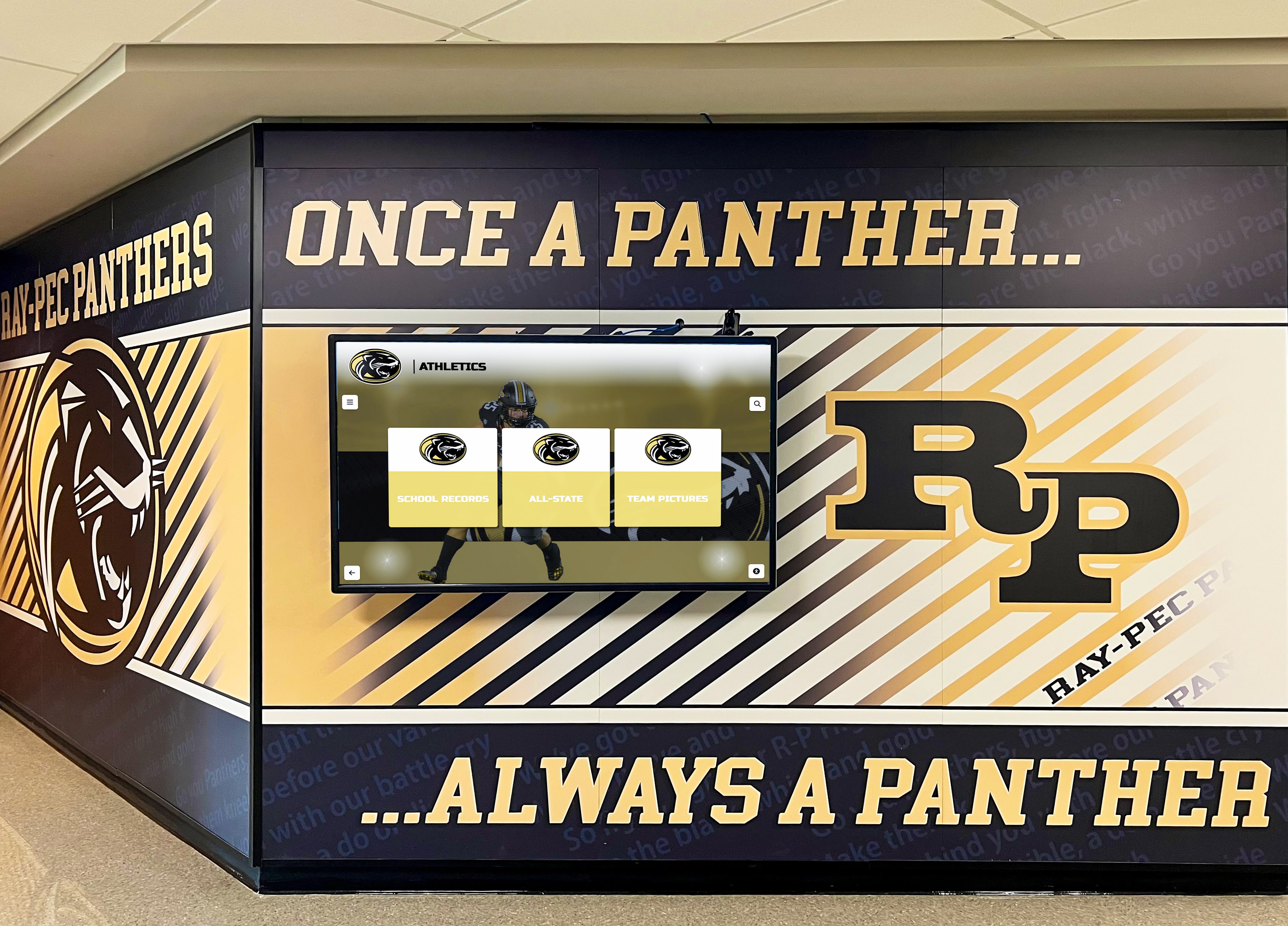
Conclusion: Your Memories Are More Accessible Than Ever
Finding digital yearbooks has never been easier. Whether you’re searching through free platforms like E-Yearbook.com and Internet Archive, exploring subscription services like Classmates.com and Ancestry, or accessing your school’s modern digital recognition system, multiple pathways now exist to reconnect with your school years.
The transition from fragile physical yearbooks to permanent digital archives ensures these precious memories survive for future generations. No longer do graduates risk permanently losing access to irreplaceable records of their youth. Digital preservation means yearbooks remain accessible regardless of what happens to physical copies.
For schools still maintaining only traditional yearbook archives, the time to digitize is now. Modern technology makes yearbook preservation affordable, accessible, and achievable—from basic scanning to comprehensive interactive recognition platforms that transform how communities engage with institutional memory.
Take Action Today
If you’re searching for your yearbook:
- Start with your school directly
- Search free platforms thoroughly
- Explore paid options if necessary
- Connect with alumni networks
- Consider alternative sources if needed
If your school lacks digital yearbooks:
- Contact administration about digitization
- Offer to help organize volunteer efforts
- Propose funding mechanisms
- Research technology solutions
- Build coalition of supporters
Your yearbook memories matter. Whether you’re rediscovering your freshman awkwardness, reliving senior year triumph, or helping ensure future generations can access these treasures, digital yearbooks make it possible. The photos, signatures, inside jokes, and documented moments of growth are waiting to be rediscovered.
Ready to Implement Digital Yearbooks at Your School?
Modern solutions like Rocket Alumni Solutions make implementing comprehensive digital yearbook and recognition systems straightforward. From initial digitization through interactive displays and mobile access, integrated platforms transform yearbook preservation from challenging project to valuable community asset. Contact providers today to learn how digital yearbook solutions can strengthen alumni engagement while preserving precious memories forever.





































